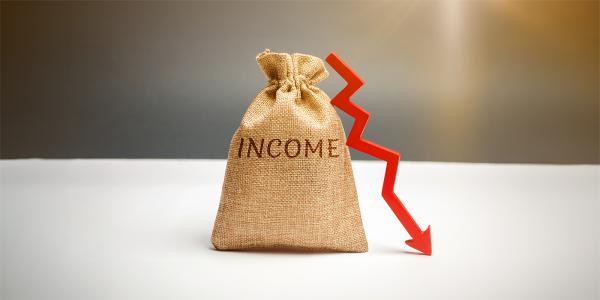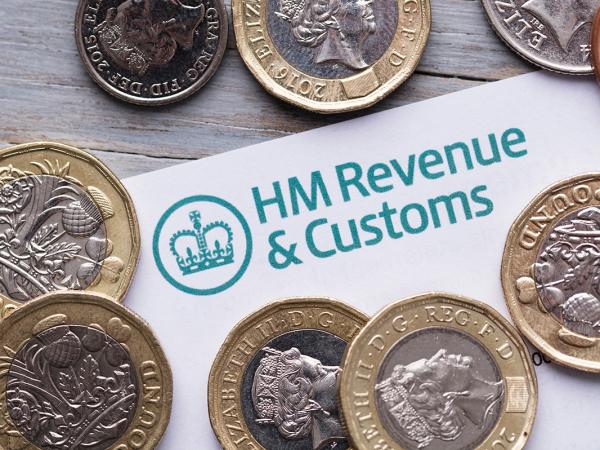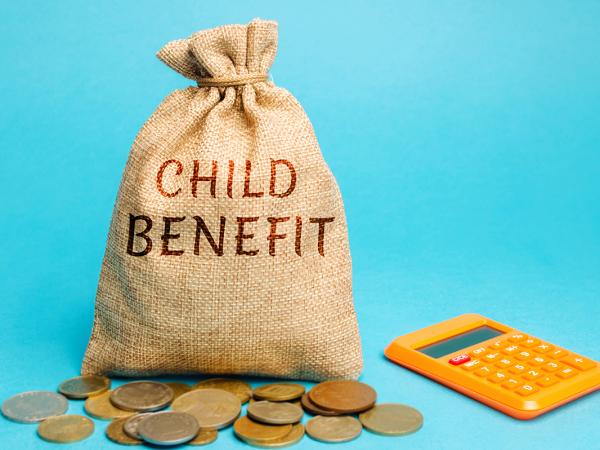HICBC: what to do if your income falls
If your income falls, your liability to the high income child benefit charge (HICBC) may change or be eliminated completely. Where this is the case, if you do not currently claim child benefit, you may wish to consider claiming it. If you have opted out of receiving payment, you may wish to restart payments. We explain some things to consider below.

Content on this page:
Impact on HICBC if your income falls
Households may find themselves in a position where they face a fall in income. This may affect liability to the HICBC.
Note that liability to HICBC is assessed according to adjusted net income for the tax year (explained on GOV.UK), even though child benefit is a weekly benefit.
For tax years up to and including 2023/24, the relevant threshold at which the HICBC starts to apply is £50,000. For 2024/25 onwards, the threshold is increased to £60,000.
Particular scenarios (change of income in 2023/24)
Below we look at various scenarios where there is a change in a person's adjusted net income during the last tax year (2023/24) and consider what impact this might have on the HICBC.
Note that the scenarios below refer to the expected and actual annual adjusted net income in 2023/24 of the partner with the higher adjusted net income.
The scenarios also assume that there is no change in the relationship throughout the year or any change in which partner has the higher adjusted net income. If there is a change in the partner with the higher adjusted net income, please see below under the heading If your income is now higher than your partner's income.
In all cases, you should check whether any adjustment included in your PAYE tax code for 2024/25 is correct, given the increase in thresholds from 6 April 2024.
From above £60,000 to above £60,000
In this case there is no effect on liability to HICBC. The HICBC remains at 100% of the child benefit received.
From above £60,000 to between £50,000 and £60,000
In this case, the HICBC becomes less than 100% of the child benefit claimed. If you have opted out of receiving payments, you may wish to restart them and backdate the payments (see below). If you are receiving child benefit payments, the partner with the higher adjusted income will need to file a self assessment tax return as normal.
Special rules apply to new claims to child benefit made between 6 April 2024 and 8 July 2024 (see our main HICBC page under the heading New child benefit claims).
If that partner has paid the full HICBC in-year via PAYE based on income in excess of £60,000, then filing the self assessment tax return may result in a tax refund. The sooner the return is submitted, the sooner the refund is paid.
From above £60,000 to below £50,000
In this case, the HICBC is eliminated completely. If you have opted out of receiving payments, you may wish to restart them and backdate the payments (see below).
Special rules apply to new claims to child benefit made between 6 April 2024 and 8 July 2024 (see our main HICBC page under the heading New child benefit claims).
If the partner with the higher adjusted net income has paid the full HICBC in-year via PAYE based on income in excess of £60,000, then filing the self assessment tax return may result in a tax refund. The sooner the return is submitted, the sooner the refund is paid.
It may no longer be necessary to file a self assessment tax return. If you are sent a notice to file a tax return, consider asking HMRC to withdraw it if you no longer meet the criteria.
Remaining between £50,000 and £60,000
The partner with the higher adjusted net income in this situation would typically be paying the HICBC via their self assessment tax return.
If an estimated charge was collected via PAYE in 2023/24, then a refund may be due upon submission of the Self Assessment tax return for 2023/24.
From between £50,000 and £60,000 to below £50,000
In this case the partner with the higher adjusted net income will no longer be liable to the HICBC.
If the charge was collected via PAYE, then a refund may be due upon submission of the Self Assessment tax return.
It may no longer be necessary to file a self assessment tax return. If you are sent a notice to file a tax return, consider asking HMRC to withdraw it if you no longer meet the criteria.
Impact of the increased HICBC threshold from 6 April 2024
As explained on our main HICBC page, the annual threshold at which the HICBC starts to apply increases from £50,000 to £60,000, with effect from 6 April 2024 onwards. In addition, the threshold at which child benefit is clawed back entirely through the charge increases from £60,000 to £80,000.
If you think your liability to the HICBC will change because of the increased HICBC threshold, or because of a fall in income during the year, you should consider whether any of the following are relevant:
- If you are not currently receiving child benefit, you may wish to claim child benefit or restart payments (note that there are rules which apply to new claims to child benefit made between 6 April 2024 and 8 July 2024 – see our main HICBC page under the heading New child benefit claims).
- If the HICBC is being collected via PAYE, you should ensure any amount included in your tax code is an accurate reflection of your expected liability for the year.
- If your (or your partner’s) adjusted net income is expected to fall to below £60,000 for the 2024/25, consider whether you (or your partner) still meet the criteria to file a self assessment tax return. If not, consider asking HMRC to withdraw any notice to file they issue so you no longer need to file a return.
If your income is now higher than your partner’s income
Remember that you should be comparing the adjusted net incomes for yourself and your partner over the whole tax year.
If your adjusted net income for the tax year is more than the relevant threshold (£50,000 up to and including 2023/24, £60,000 from 2024/25) and is higher than your partner’s, you will liable to pay any HICBC due in respect of child benefit received in the year.
If you don’t already file a self assessment tax return, you will need to register to complete one and calculate your liability to the charge.
If your partner previously had higher income and paid the HICBC via self assessment, they should consider whether or not they still meet the criteria to file a self assessment tax return for the year in which you become liable to the HICBC. If a notice to file a return has been issued, it may be possible to get it withdrawn.
If your partner has passed away
If your partner dies and had been the named claimant for child benefit, then it is important you notify the Child Benefit Office as soon as possible after the death and ensure you make a new claim in your own name, assuming you qualify (i.e. you are the child’s main carer). you can read more about this on our page State benefits on death.
If the deceased was liable for the HICBC prior to their death, then it may still be applicable for your partner’s final tax return, depending on their adjusted net income from the start of the tax year up until the date of death. However, you should consider whether your partner’s adjusted net income for the year of death falls within one of the situations described in the table above. You may wish to consider reinstating payments (where you have opted out of receiving them) or otherwise making a new claim to child benefit if you had not previously done so.
Claiming child benefit
Refer to the guidance on GOV.UK. Note that new claims are backdated for up to 3 months (provided you are eligible for this period). Special rules apply to new claims to child benefit made between 6 April 2024 and 8 July 2024 – see our main HICBC page under the heading New child benefit claims for more information.
Restarting payments after having opted out
Refer to the guidance on GOV.UK.
You can also request to reinstate payments for the two previous tax years, if applicable, by contacting the child benefit office via telephone. You should make a note of the date and time of the call and the information provided.



